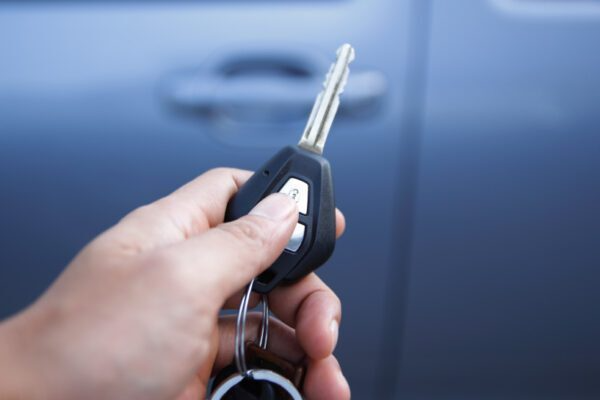At the automotive supplier trade fair IZB 2022 currently taking place in Wolfsburg, the development service provider Cognizant Mobility is presenting its newly developed digital car key 3.0 as well as key sharing options. The development has high security standards and features that go beyond the classic functions of a car key.
The concept of “software-defined vehicles” (SDV) is now generally regarded as a trend-setting approach to the fundamental design of vehicle electronics. Behind the term hides the transformation of the classic vehicle from a primarily hardware-based product to a software-centric electronic device on wheels. The car of the future is defined by several million lines of code, features and functions as well as safety and driving experience are based on software. The digitisation of the car key is only a logical consequence on the way to the SDV. Digital car keys are controlled exclusively by software and are modular, high-performance and can be uploaded to the vehicle over-the-air.
“The digital car key 3.0 technology has not yet been implemented by any manufacturer in this expansion stage and in combination with key sharing. However, the key is ready for use and implementation in series production is possible,” says Jörg Ohlsen, Managing Director of Cognizant Mobility. With Key-Sharing 3.0, his company is providing an innovative, technological impulse for all car manufacturers interested in digital retrofit features, the Cognizant Mobility boss explained.
The basic concept of the digital car key is simple: vehicle owners no longer use a physical key, but instead a digital key stored on their smartphone. With this key, the vehicle can not only be locked and unlocked; with the included connectivity functions, settings such as the desired comfort temperature or the ambient light can also be made conveniently from a distance. One advantage and unique selling point of this approach is its digital divisibility. This means that the vehicle key can easily be handed over to other, selected persons – and in contrast to a conventional car key, the owner can equip the electronic key copy with certain defined settings and restrictions, such as range and speed limits, or a restriction of functions – for example, so that the key is only capable of opening and locking the vehicle, etc. The key can also be used for other purposes. Another big advantage is that such a key cannot be lost – the underlying apps can be restored, even if the smartphone is lost.
Three different technologies are basically used to implement a digital key: NFC (Near Field Communication), UWB (Ultrawideband) and Bluetooth. In the latest version 3.0 of the underlying CCC (Car Connectivity Consortium) standard, UWB technology is used in particular for location-based functions and improved usability. Cognizant Mobility thus succeeds in offering a comprehensive and secure solution based on the UWB (Ultrawideband) radio standard and new embedded technologies, as well as using modern end-2-end development methods and automated testing.
The current technology is no longer comparable to the state of the art in recent years, when it was relatively easy for unauthorised third parties to leverage the rights to use such a key. Today, users register an “owner device” on which the real key is stored. When the user opens his vehicle, the device recognises the smartphone of the car owner who wants to open the car and can also recognise how long the signal took to unlock from the device to the lock based on the time of flight of the radio signal. The combination of Bluetooth and UWB makes this ranging so effective that misuse is virtually impossible, claims Cognizant Mobility.
In addition to the technical implementation of its digital car key solution, Cognizant Mobility will also be demonstrating fully autonomous testing at the show as the final step in a continuous end-2-end development process chain.



Leave a comment